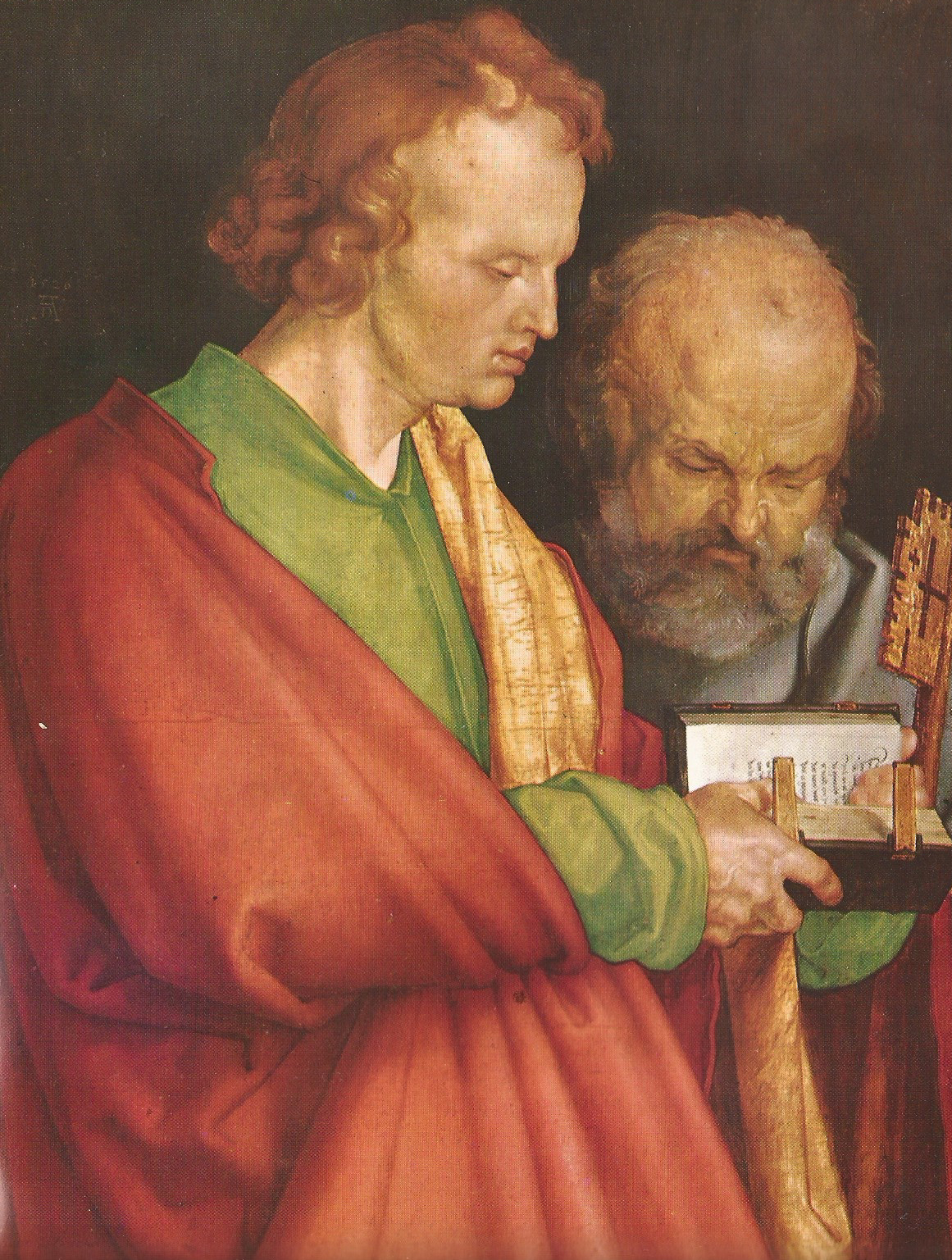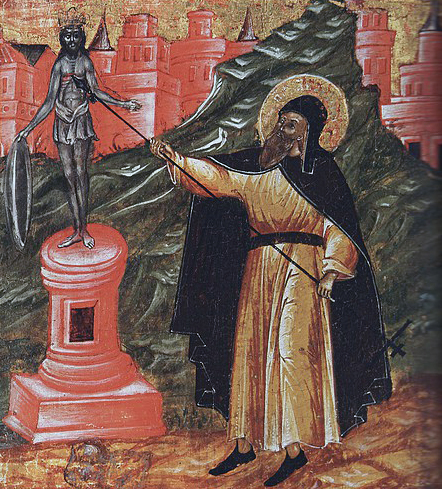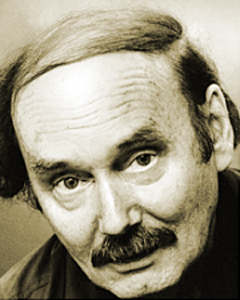Below, an abridged translation from the third volume of
Karlheinz Deschner’s Kriminalgeschichte des Christentums.
All the ‘general epistles’ of the New Testament, seven in all, are fakes
Among the so-called general epistles are the first and second of Peter; the first, second and third of John, that of James and that of Judas. Still in the 4th century, at the time of the Father of the Church Eusebius, although they were read in most of the churches, only two were unanimously considered authentic: the first of John and the first of Peter.
It is not until the end of the 4th century that all the general epistles are considered canonical in the West. The situation is now different and all of them are designated as ‘anonymous or pseudo-epigraphic writings’, no matter how much the ancient Church introduced them with the name of several authors (Balz).
Peter
Under the name of Peter, a Christian falsified two epistles. This is certainly true for the later writings of the New Testament such as the Second Epistle of Peter, something that even Catholic scholars no longer doubt.
This letter, which, suspiciously, is almost a literal copy in many passages of that of Judas, enjoyed little confidence in the old Church. Throughout the 2nd century it is not quoted. The first to affirm its indisputability was Origen, but still in the 4th century Bishop Eusebius, the historian of the Church, states that it is not authentic, and Didymus the Blind, a famous Alexandrian scholar whose disciples included Rufinus and St. Jerome, says it is faked.
‘Simon Peter, servant and apostle of Jesus Christ’, thus begins the forger to legitimise himself as a witness, has ‘seen himself’ the magnificence of Jesus and also heard the call of God ‘from heaven’ in his christening. He not only warns the faithful that God finds them ‘without spot or worthy of punishment’, but attacks the ‘false prophets’, the ‘false teachers’ and advises to capture and kill them ‘as irrational animals’.
The Second Epistle of Peter, which is intended to be taken as the testament of the apostle, was written long after his death, perhaps three generations later; and was attributed to St. Peter in order to counteract the doubts about the Parousia. The letter is full of controversy against the ‘heretics’, especially the blasphemers ‘who go through life freely and say: where is your promised return? Since the parents died, everything remains as it was at the beginning of creation’. The daring forger, who claims the same apostolic authority as Paul, simulates from the beginning to the end of the epistle the fiction of a Petrine origin. He supports it with his own testimonies seen and heard, and appeals to ‘the deep feelings of his beloved ones’. He also claims for himself the First Epistle of Peter, even though the great differences between both letters exclude the possibility that they come from the same author.
But it is notorious that the First Epistle of Peter is also falsified notwithstanding the fact that, for Luther, it is ‘one of the noblest books of the New Testament and the authentic Gospel’. It is precisely the evident kinship with the Pauline epistles, confirmed by modern exegesis (for what Luther was so enthusiastic) that makes Peter’s authorship unlikely.
Moreover, the place where it is written is apparently Rome, because by the end the author expressly greets ‘from Babylon’: a frequent secret name in the apocalyptic literature for the capital of the Empire, where Peter should have been when he suffered martyrdom in 64 AD. However, the name of Babylon to designate Rome appears in all likelihood because of the impression caused by the destruction of Jerusalem, and this happened in AD 70, that is, several years after the death of Peter. It is also extremely strange that the famous canonical index of the Roman Church, the Muratorian Canon (around 200), does not mention this epistle of Peter: a letter of its presumed founder. We will not review other criteria, also formal, that make less and less likely a Petrine origin of this document.
About the First Epistle of Peter, whose word ‘Peter’ carries the tagline of ‘an apostle of Jesus Christ’, recently Norbert Brox has stated in Faische Verfasserangaben (book author information) that, by its content, character and historical circumstances, it shows ‘no connection with the figure of the historical Peter; nothing in this epistle makes this name credible’. Today it is considered ‘completely a pseudepigraphic’ (Marxsen), ‘without any doubt a pseudonym writing’ (Kümmel). In short, another falsification of the New Testament, conceived between the years 90 and 95, in which the deceiver indiscreetly invokes Christ, and demands to be ‘holy in all your life’s journey’, ‘to reject all evil and falsehood’, not to say ‘lies’ and ‘always demand pure spiritual milk’.
John
According to the ecclesiastical doctrine, three biblical letters come from the apostle John. However, in none of them the one who writes cites his name.
The First Epistle of John started to be quoted as early as the middle of the 2nd century; and in those times it was already the subject of criticism. The Muratorian Canon reviews, around the year 200, only two epistles of John, the first and one of the so-called small epistles. It is not until the beginning of the 3rd century when Clement of Alexandria notarises the three epistles. However, in the 2nd and 3rd centuries they were not considered canonical everywhere. This only happened well into the 4th century. ‘They are not recognised unanimously’, Bishop Eusebius writes, ‘they are ascribed to the evangelist or to another John’.
The First Epistle of John is so similar in its style, vocabulary and ideology to the Gospel of John that most Bible researchers attribute both writings to the same author, as tradition has always done. But since the latter does not come from the apostle John, neither can the First Epistle of John be his. And since the second epistle is, so to speak, an abbreviated edition (thirteen verses) of the first one, which is almost unanimously attributed to the same author, nor can it have been penned by the apostle John. And that he even wrote a third one is something that the ancient Church already questioned.

Note of the Ed.: This handsome 1526 painting by Albrecht Dürer, The Apostles in the Alte Pinakothek of Munich shows Peter and John. It cannot be more deceptive from the historical point of view. Not only the Semites of the 1st century looked like Untermenschen as we have already seen, but the Apostle John did not even write the gospel attributed to him.
Even conservative bibliologists admit today that the author of the three epistles of John is not the apostle, as the Church has been teaching for two millennia; but that he was one of his disciples and that the ‘Johannine tradition’ had transmitted it. About the main epistle, the first, which from the beginning was not the subject of discussions, Horst Balz says: ‘Just as the apostle John, son of Zebedee and brother of James, cannot be considered author of the homonymous Gospel, so much less he may be behind the First Epistle of John’.
Other apostles
The alleged epistle of James was also falsified. Like most of the ‘general epistles’ it only imitates the epistolary form. This text, which is especially difficult to fix temporarily, contains proportionately few Christian features. It borrows numerous elements from the Cynic and Stoic philosophies and even more from the wisdom of the Jewish Old Testament, for which many authors consider it a slightly retouched Jewish writing.
Although the epistle claims to have been written by James, brother of the Lord, many important reasons exclude this possibility. For example, he only quotes the name of Jesus Christ, his divine brother, twice. He does not miss a syllable while writing about the laws of Jewish ritual and ceremonial, but, unlike most authors of biblical letters, he uses the formalities of Greek epistolary. He writes in good Greek, something unusual for a New Testament author. It is a surprising text with rich vocabulary and many literary forms such as paronomasia, homoioteleuron, etc. This and many other features show that this epistle, which constantly preaches those who apostrophise as ‘dear brothers’, the ‘faith in Jesus Christ, our Lord in Glory’, is a ‘more elaborate version of literary falsification’ (Brox) than the First Epistle of Peter.
It is curious that the epistle of James, later canonised in the West, is absent in the Muratorian Canon, Tertullian and Origen. Bishop Eusebius reports on the little recognition it enjoyed and the questioning of its canonicity. Luther also dismissed it. He even comes to threaten to ‘throw the rubbish into the fire’ and ‘expel it from the Bible’.
Finally, the brief Epistle of Judas, the last of the epistles of the New Testament which in the first verse claims to have been written by ‘Judas, slave of Jesus Christ, the brother of James’, is also included in the numerous falsifications of the ‘Sacred Scriptures’. This epistle also betrays ‘clearly later epochs’ (Marxsen).
It is a matter of fact ‘that in the early times falsifications were made under the name of the apostles’ (Speyer); that authenticity is claimed about them, that the ‘apostles’ give their names and that the texts were written in the first person. It is also a fact about ‘all the writings of the New Testament’, as the theologian Marxsen emphasizes, that ‘we can only provide the exact names of two authors: Paul and John (the author of the Book of Revelation)’. And, finally, it is also a fact, and one of the most worthy of attention, that more than half of all New Testament books are unauthentic, that is, they have been falsified or appear under a false name.
In the next section we will show pars pro toto (part of the whole) that, in addition, in the ‘Book of books’ there is a whole series of counterfeits in the form of interpolations.
______ 卐 ______
Liked it? Take a second to support this site.
 Already the first of the presumed persecutions under Nero—which, for two millennia, made this emperor a monster without equal for Christians—was not a persecution against Christians but a process for arson. Even historians Tacitus and Suetonius, hostile to Nero, judged the process as just and reasonable. ‘Christianity was not discussed’, writes the evangelical theologian Carl Schneider. Also, the history of Christianity of the Catholic theologian Michel Clévenot establishes ‘that neither Nero, nor the police nor the Romans must have known that they were Christians; they were still moving too far in the dark and their number was still too small for their executions to have been a matter of public interest’.
Already the first of the presumed persecutions under Nero—which, for two millennia, made this emperor a monster without equal for Christians—was not a persecution against Christians but a process for arson. Even historians Tacitus and Suetonius, hostile to Nero, judged the process as just and reasonable. ‘Christianity was not discussed’, writes the evangelical theologian Carl Schneider. Also, the history of Christianity of the Catholic theologian Michel Clévenot establishes ‘that neither Nero, nor the police nor the Romans must have known that they were Christians; they were still moving too far in the dark and their number was still too small for their executions to have been a matter of public interest’.







